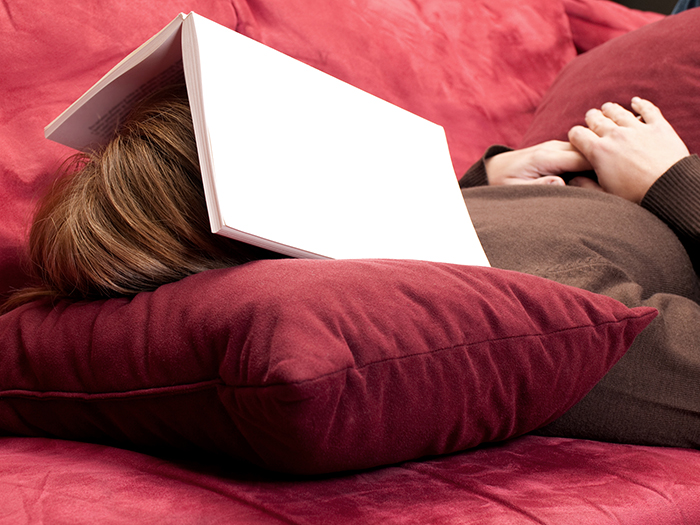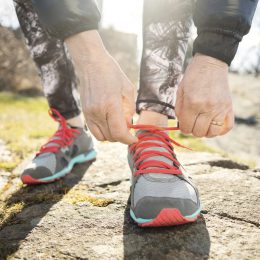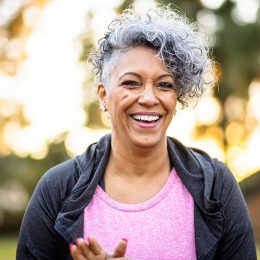Why Am I Always So Tired?
No, it’s not a symptom of aging. Here’s what might be causing your fatigue, and how to reclaim your energy.

Sometimes fatigue feels like a side effect of everyday life. A hectic schedule, spending an afternoon with your grandkids, or a particularly heavy meal is enough to make even the most energetic person snooze like a baby once 9:00 p.m. hits.
But while feeling tired every now and then is normal, feeling tired all the time isn’t.
“It is not an inevitability of age that you get tired and fatigued,” says Lawrence Epstein, M.D., director of the sleep medicine fellowship program at Brigham and Women’s Hospital in Boston and former president of the American Academy of Sleep Medicine.
“Typically, fatigue is secondary to something else, and we need to identify what that is to try and address it,” he says.
Fatigue—which is characterized by tiredness, loss of energy, or lack of physical and mental motivation—can stem from a wide variety of problems.
Here a few potential causes to consider if you can’t seem to keep your eyes open during the day. Plus, how to reclaim your energy—fast.
1. You’re Not Getting Enough Sleep
Most people simply are not getting the amount of sleep they need, which is at least seven to nine hours each night, Dr. Epstein says.
“It’s a myth that you need less sleep as you get older,” he says. “By the time you get to adulthood, your sleep needs are pretty fixed for the rest of your adult life. What does change is your ability to get that sleep, because it becomes lighter and more fragmented.”
This can be due to medical problems, chronic pain, or even lack of exercise, Dr. Epstein notes.
If you find you’ve been staying up later than usual, try adjusting your schedule so you go to bed and wake up at the same time each day to get yourself back into a routine, he suggests. These five tips to fall and stay asleep—starting tonight—can also help.
2. You Have an Underlying Medical Problem
A slew of medical conditions can mess with your sleep, including allergies, heart problems, depression, anxiety, Alzheimer’s disease, menopause, or even an overactive bladder. But as you get older, sleep disorders—like sleep apnea or restless leg syndrome—also become more common, Dr. Epstein says.
Take note if you’re told you’re snoring loudly at night, make a gasping noise as you sleep, or wake up with a dry mouth or feeling irritable. These symptoms are associated with sleep apnea, a condition in which you stop breathing in your sleep.
Untreated sleep apnea has been associated with serious health conditions, including heart arrhythmias, heart failure, and stroke, Dr. Epstein says. In addition to the symptoms above, become familiar with these lesser-known signs of sleep apnea—and talk to your health care provider if you spot any of them.
Restless leg syndrome, on the other hand, means you feel tingling or pulling sensations, typically in the legs. Many people who suffer from it describe it as the feeling of insects crawling on your skin.
If you suspect you may be dealing with any sleeping disorder, talk to your doctor about getting tested, Dr. Epstein says. You’ll go through a sleep study to rule out any other sleep disturbances and wear equipment that monitors your sleep. From there, he or she can recommend the proper treatment.
3. Your Medication Is Messing with You
Certain medications have a stimulating effect, explains Dr. Epstein. These include common cold medicine and decongestants, adult attention-deficit hyperactivity disorder (ADHD) medication, pain relievers, and certain antidepressants.
This means they can actually boost your attention by working on chemicals in your brain. Sounds great, right? Not necessarily. Because these medications increase alertness, they could ultimately make you feel sleepy by keeping you up at night.
On the flip side, fatigue is a common side effect of many prescription drugs, like blood pressure medication and antihistamines.
If you notice changes in your sleep or energy levels, continue taking any prescription medication as directed, but bring it up with your doctor. He or she may be able to recommend a different medication or dosage.
You should also check with your doctor or pharmacist before taking an over-the-counter (OTC) medication. Many drugs are metabolized differently in seniors—meaning your body might process it more slowly or quickly than it did when you were younger—which could lead to side effects if you don’t adjust the dosage for your age.
4. You Sip the Wrong Drinks Before Bed
Sometimes a cup of joe is the perfect complement to your dessert—but it could also be the culprit behind your fatigue.
“Caffeine is a stimulant, and most people aren’t aware that the effects of it can last four to eight hours,” Dr. Epstein says. This means you’ll be tossing and turning all night, inevitably causing some grogginess in the morning.
Subscribe to our newsletter
It's quick and easy. You could be one of the 13 million people who are eligible.
Already a member? Click to discover our 15,000+ participating locations.
Follow Us
The same goes for your nightcap. “Alcohol makes you fall asleep faster, but once you fall asleep, it disrupts your sleep,” he says. And the older you get, the harder it is for your body to handle alcohol.
Your best bet: If you have trouble sleeping, avoid booze and caffeine (including soda and tea) after lunch, and see how it affects your alertness the next day. Be sure to sip plenty of water to stay hydrated—and alert.
Here Are 4 Ways to Reclaim Your Energy
1. Develop Better Sleep Habits
Creating a bedtime routine is key to sufficient sleep, Dr. Epstein says. Your best move is to make your bedroom a dark and comfortable space, keep electronics out of your bed, and end the day doing relaxing activities (like reading a book or meditating).
2. Exercise More Often
“Your overall health and activity can absolutely influence your sleep,” Dr. Epstein says. “The healthier you are, the better you sleep.”
Aim to fit in at least 150 minutes of moderate activity per week. You can break it up into however many sessions you need. And when it comes to what you do, the possibilities are seemingly endless: Walking, jogging, hiking, biking, dancing, and water exercise are all great options.
Just make sure your workout ends at least two hours before bed. Otherwise, it might have the opposite effect and prevent you from dozing off.
3. Take Short Naps
Napping can help you combat grogginess, but only if you keep it brief—ideally 10 to 30 minutes. Indulging in a longer nap can not only make you feel tired throughout the rest of the day, but it may also make it harder to fall asleep at night, which causes the sleepiness cycle to repeat itself.
Power naps, on the other hand, can help you feel sharper. A review from the Journal of Sleep Research found that the combination of a 30-minute afternoon snooze (between 1 and 3 p.m.) and a moderate-intensity exercise session in the early evening (around 5 p.m.) can improve sleep quality in older adults.
4. Talk to a Pro
“If you’ve really done all of this and still aren’t feeling better after a month or so, go to your doctor,” Dr. Epstein says. He or she will be able to rule out more serious medical complications.
Take Your Favorite SilverSneakers Classes Online!
SilverSneakers members can access live fitness classes and wellness workshops through SilverSneakers LIVE. See the latest schedule and RSVP for classes here.
Not a member? If you have a Medicare Plan, it may include SilverSneakers—at no additional cost. Check your eligibility instantly here.





